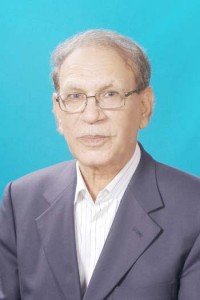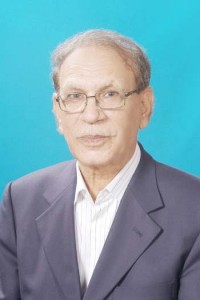 Mohammad Jamil
Mohammad Jamil
mjamil1938@hotmail.com
Kashmir boils again. While Kashmiris were preparing to observe Kashmir Martyrs’ Day, Hurriyet commander Burhan Muzaffar Wani, aged 21, was killed in an encounter in Kokernag in South Kashmir on Friday. The valley is under curfew, whereas complete strike has been observed for the last three days. There were demonstrations against his extrajudicial killing throughout Kashmir, and 30 Kashmiris have been martyred by the police and military to quell the unrest. But the repression and killings have not been able to break the will of the Kashmiris, and they are determined to get the right of self-determination given to them through UN resolutions.
This day, 13th July reminds us of 21 Kashmiris martyred outside Central Jail on 13th July 1931 by Dogra police where people had gathered to express solidarity with one Kashmiri youth Abdul Qadeer who was indicted for sedition against Dogra Raj. At the time of Zohar, one youth started call to prayer (azan), who was shot dead by Dogra police. The other one started azan from where the first one had ended, but he was also shot dead. Like this 21 Kashmirisi fell one by one but they completed azan for Zohar prayer. This incident gave birth to the movement against Dogra Raj, and it was, indeed, due to this movement that British government had appointed Glancy Commission to investigate into the atrocities committed by the Maharaja.
It was also result of this sad episode that Kashmiri leadership realized the need to build up an organization, and Muslim Conference was formed. In 1934, State’s first elections were held, and the Muslim Conference won 21 out of 16 seats. After two years in 1936, it succeeded in getting 19 out of 21 seats. Anyhow, after illegal occupation of Kashmir by India, Kashmiris have passed through the longest ordeal, and faced repression, death and destruction. Since 1947, Indian atrocities have turned the paradise on earth into hell that would stretch Dante’s imagination. When it became unbearable for them, valiant Kashmiris started armed struggle in 1989 and since then more than 97000 Kashmiris have laid down their lives and as many injured. Yet they are determined to take their struggle to the logical conclusion.
However, in its latest report, the Amnesty International called upon India to revoke especially draconian law, Armed Forces Special Powers Act (AFSPA), which provides immunity to the personnel of armed forces involved in human rights violations in occupied Kashmir. “By not addressing human rights violations committed by security force personnel in the name of national security, India has not only failed to uphold its international obligations, but has also failed its own Constitution,” said Minar Pimple, the Senior Director of Global Operations at Amnesty International. The report called for an independent and impartial inquiry into cases of abuse, as not a single trooper was tried in a civilian court for violating human rights in Kashmir.
In July 2010, Amnesty International (AI) in a statement issued in London said that Indian authorities should avoid excessive use of force while dealing with demonstrators in occupied Kashmir. It was in reference to killings of 11 persons, at least eight of them teenagers in shootings by the Indian paramilitary Central Reserve Police Force (CRPF) personnel stationed across the Kashmir valley. When protestors held demonstrations in Srinagar, Sopore and other towns, the towns were put under curfew. The Amnesty International had said that harassment, humiliation, acts of cold-blooded murder, mass rapes, arson, and endless human rights violations perpetrated upon the hapless Kashmiri people by Indian security forces including army, BSF, CRPF and police continue.
In fact, it was India that took the matter to the United Nations, which approved demilitarization of the state accepted both by India and Pakistan. On 5th January 1949, United Nations gave the right to the Kashmiris to join either Pakistan or India in the plebiscite to be held under the aegis of the United Nations. On June 26, 1952, then Indian prime minister Jawahar Lal Nehru had told on the floor of Lok Sabha – Indian Parliament “if the Kashmiri people decided to join Pakistan they might do so”. But India backtracked on all promises made with United Nations and the commitments made in front of international community allowing Kashmir the right to self-determination. But in later years, India amended its constitution to make Kashmir its integral part; which was beginning of the grave human rights violations of the people of Indian Held Kashmir.
In the past, many a time efforts were made by Indian lobbyists to remove Kashmir dispute from the UN agenda. Using its influence in the UN because of Indian officials in the UN, a fake news report was released about removal of Kashmir dispute from the UN agenda, as the issue had not been mentioned since 2005 in the UN. As regards talks between the two countries, India has been focusing on confidence building measures to enhance people to people contact, cultural exchanges and economic cooperation, but these are not alternatives to the resolution of the Kashmir dispute over which both countries had three wars. It is hoped that this time round India would realize the gravity of the situation and resolve disputes vis-à-vis Sir Creek, violations of Indus Water Treaty, Siachen and Kashmir to avert any disaster due to the war between two nuclear states.



